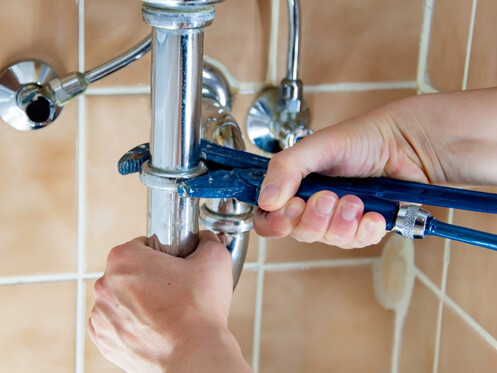Your home’s plumbing system is vital for daily life, yet it often goes unnoticed until something goes wrong. Regular maintenance can prevent costly repairs and ensure your plumbing system runs efficiently. If you encounter any issues, visit the san diego emergency plumbing & leak detection website for expert help. Here are ten essential steps to maintain your home’s plumbing system and keep everything flowing smoothly.
1. Inspect for Leaks Regularly
Leaks may seem minor, but even small drips can lead to significant water damage and higher utility bills over time.
- Check visible pipes: Look for water stains, corrosion, or pooling water under sinks and near appliances.
- Don’t ignore signs: Unexplained increases in your water bill or musty smells could indicate hidden leaks.
Fun fact: A faucet dripping once per second wastes over 3,000 gallons of water annually – enough to fill 60 bathtubs!
2. Monitor Water Pressure
High water pressure might feel luxurious, but it can strain your pipes and appliances.
- Use a pressure gauge: Ideal water pressure ranges between 40 and 60 PSI.
- Install a regulator: If pressure is too high, a regulator can protect your plumbing system.
3. Clean Drains Regularly
Clogged drains are a common plumbing issue, but regular cleaning can prevent blockages.
- Avoid harsh chemicals: Opt for natural solutions like baking soda and vinegar.
- Use drain covers: These catch hair, food particles, and other debris before they enter your pipes.
When you’re dealing with clogged or damaged drains, expert plumbing repairs are the key to quickly restore proper flow and prevent further issues.
Pro tip: Flush drains monthly with hot water to clear minor buildup.
4. Maintain Your Water Heater
Your water heater works hard to provide hot water daily, so it’s essential to keep it in good shape.
- Flush the tank annually: This removes sediment buildup that reduces efficiency.
- Inspect the anode rod: Replace it if it’s corroded to prolong the heater’s lifespan.
Fun fact: A well-maintained water heater can last 8 to 12 years or more!
5. Protect Pipes from Freezing
Frozen pipes are a major concern in cold climates and can lead to bursting if not addressed.
- Insulate exposed pipes: Use foam insulation sleeves on pipes in unheated areas.
- Keep faucets dripping: During freezing temperatures, let water run slightly to prevent freezing.
6. Check for Running Toilets
A running toilet can waste gallons of water daily, driving up your utility bills.
- Test for leaks: Add food coloring to the tank and check if it seeps into the bowl without flushing.
- Replace faulty parts: Often, the flapper or fill valve needs replacement.
7. Use Appliances Wisely
Dishwashers, washing machines, and garbage disposals play a role in your plumbing system’s health.
- Run full loads: This conserves water and prevents overuse of your system.
- Avoid overloading: Overloaded washing machines can strain your pipes and cause backups.
8. Keep an Eye on Outdoor Plumbing
Outdoor faucets and irrigation systems are often overlooked but are equally important.
- Disconnect hoses in winter: This prevents water from freezing and expanding in the pipes.
- Inspect sprinklers: Check for leaks or clogs in your irrigation system.
Fun fact: Outdoor leaks can waste up to 6,300 gallons of water per month!
9. Be Mindful of What You Flush
Your toilet isn’t a trash can. Flushing improper items can lead to clogs and damage.
- Only flush toilet paper: Hygiene products, wipes (even if labeled flushable), and cotton balls should go in the trash.
- Educate your household: Ensure everyone understands what’s safe to flush.
10. Schedule Regular Professional Inspections
Some issues are invisible to the untrained eye. A professional plumber can spot problems early and offer solutions.
- Annual checkups: Regular inspections catch potential problems before they become costly repairs.
- Sewer line checks: Professionals can use cameras to detect blockages or damage in your sewer system.
By following these ten steps, you can prevent many common plumbing problems and extend the life of your system. Regular maintenance saves you time, money, and stress, ensuring your home’s plumbing remains efficient and reliable.
Start implementing these tips to maintain your home’s plumbing system and enjoy the peace of mind that comes with a well-maintained home. A little effort today can prevent big problems tomorrow!

